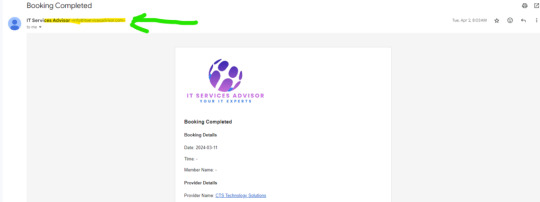#Spotscammers
Explore tagged Tumblr posts
Text
National Consumer Protection Week: Safeguarding Yourself Against Scams

National Consumer Protection Week (NCPW) observed annually during the first full week of March, is a time dedicated to helping people understand their consumer rights and make well-informed decisions about money and the marketplace. This collaborative effort between federal, state, and local agencies, along with consumer organizations, aims to educate and empower consumers across the United States. In an era where scams and fraudulent activities are becoming increasingly sophisticated, it's crucial for consumers to stay vigilant and informed. During NCPW, various organizations provide resources, host events, and share tips to help individuals protect themselves from fraud and make smarter financial choices. The Importance of Consumer Protection Consumer protection is vital in maintaining a fair and transparent marketplace. It ensures that businesses operate ethically and that consumers have access to accurate information about products and services. Without proper protection, consumers can fall victim to various scams, leading to financial losses and potential identity theft. Common Scams to Watch Out For - Phishing emails and texts - Fake online shopping websites - Impostor scams (e.g. fake government officials or tech support) - Investment frauds - Lottery and sweepstakes scams - Romance scams - Job offer scams - and now AI scams - Text messages When purchasing something on a website always look at the website for mistakes or not enough info about the company. A good place to check first is the footer of the website. Alot of times scam websites will not put an about compnay, contact info and the footer will be the bare minuim. Check the contact us page! If you dont see and address and full contact info like phone number its a sure sign. To good to be true. If you find a price for a product that is way lower then others it's probably to good to be true. That goes for social media add as well. Email scams: 1st: Always check the from email address. If it's not from the companies domain or website it's a scam. Example: Below is a scum scammer trying to act like paypal with a PDF attachment )NEVER CLICK ON THESE) you can see the email has some fake gmail account and is not from paypal domain.

Below is a good email from the domain. You can see this email is from the actual domain of the sender

Be careful and make sure the domain from the sender is the exact one. Sometimes scum scammers will purchase a close domain with a letter changed or a hyphen. If your not sure and you gut is telling you something a good rule of thumb is never click on the email and go directly to that companies website contact page and contact them that way. Text messages: Never click on any delivery text messages. These are scams unless you opted in directly on UPS or USPS. Scammers make fake sites and want you to enter you info and along with payment info then it is stored in their site and is now theirs. Best thing to to is block that contact number or email and report it then delete it. Steps to Avoid Getting Scammed - Be skeptical of unsolicited communications: - Don't trust unexpected emails, phone calls, or text messages asking for personal information or immediate action. - Verify the sender's identity independently before responding or clicking on any links. - Research before making purchases: - Check reviews and ratings from multiple sources before buying from unfamiliar websites or businesses. - Verify the legitimacy of a company through the Better Business Bureau or other consumer protection organizations. - Use secure payment methods: - Opt for credit cards or secure online payment systems that offer fraud protection. (Example: purchasing through PayPal) - Avoid wire transfers or gift card payments to unfamiliar entities. Gift cards are for gifts nothing else when you purchase! - Protect your personal information: - Never share sensitive data like Social Security numbers, bank account details, or passwords over unsecured channels. - Use strong, unique passwords for each of your online accounts and enable two-factor authentication where possible. - Keep your technology updated: - Regularly update your devices' operating systems and security software to protect against the latest threats. - Be wary of high-pressure tactics: - Legitimate offers don't require immediate decisions. Take your time to research and think things through. - Educate yourself: - Stay informed about the latest scams and fraud techniques by following reputable consumer protection organizations and government agencies. - Trust your instincts: - If something seems too good to be true, it probably is. Don't let fear or excitement cloud your judgment. - Monitor your accounts: - Regularly check your bank and credit card statements for unauthorized transactions. - Review your credit report annually for any suspicious activity. - Report suspicious activity: - If you encounter a potential scam, report it to the Federal Trade Commission (FTC) or your local consumer protection agency. Resources for Consumers During National Consumer Protection Week and throughout the year, several organizations offer valuable resources to help consumers stay informed and protected: - Federal Trade Commission (FTC): Provides consumer information, complaint filing, and identity theft resources. - Consumer Financial Protection Bureau (CFPB): Offers educational materials on financial products and services. - Google it. Check websites and more with google - Better Business Bureau (BBB): Offers business ratings, reviews, and scam alerts. - USA.gov: Help fight back and report the scum scammers! USA gov has a great tool you can use to find were to report that scum scammer Wrapping up National Consumer Protection Week serves as a reminder that staying informed and vigilant is crucial in today's complex marketplace. By following the steps outlined above and utilizing available resources, consumers can significantly reduce their risk of falling victim to scams and fraudulent activities. Remember, protection starts with education and awareness. Stay informed, stay cautious, and don't hesitate to seek help or report suspicious activities. Your financial well-being and personal information are worth protecting.
Looking for a IT company for your home or business to help protect against scammer scum?
We have the best IT Compnaies you can trust that will professionaly provide you the service you need from IT cyber security to IT cable installations. Start looking for the best IT company today and click the link below Find a IT company near me! Read the full article
0 notes